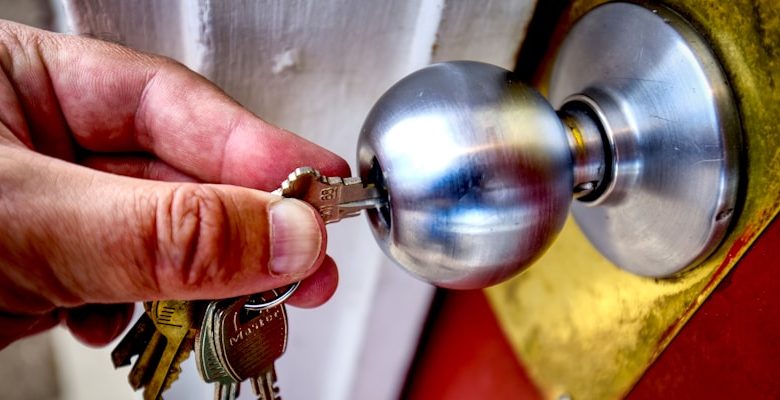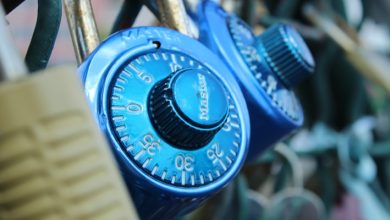How to Safeguard Your Private Keys Effectively

- Understanding the importance of private keys
- Best practices for generating strong private keys
- Securing your private keys from cyber threats
- Utilizing hardware wallets for enhanced security
- Creating a backup plan for your private keys
- Educating yourself on the risks of private key exposure
Understanding the importance of private keys
Understanding the significance of private keys is crucial when it comes to safeguarding your digital assets. Private keys are essentially the passwords that grant you access to your cryptocurrency holdings. They act as a secure way to authenticate your ownership of the coins or tokens stored in your digital wallet. Without your private key, you would not be able to make transactions, access your funds, or prove ownership of your assets.
It is important to keep your private keys secure and confidential at all times to prevent unauthorized access to your cryptocurrency holdings. If someone gains access to your private key, they can easily steal your digital assets without your knowledge. Therefore, it is essential to store your private keys in a safe and secure location, such as a hardware wallet or a secure digital vault.
When generating your private keys, it is recommended to use a secure and reliable method to ensure that they are not compromised. Avoid using online generators or storing your private keys on internet-connected devices, as they are more vulnerable to hacking and theft. Instead, opt for offline methods of key generation and storage to minimize the risk of unauthorized access to your digital assets.
By understanding the importance of private keys and taking the necessary precautions to safeguard them effectively, you can protect your cryptocurrency holdings from theft and unauthorized access. Remember to keep your private keys secure, confidential, and backed up in multiple secure locations to ensure that you always have access to your digital assets when you need them.
Best practices for generating strong private keys
When it comes to safeguarding your private keys, generating strong keys is crucial. Here are some best practices to follow:
- Use a reliable random number generator to create your private keys. This will help ensure that your keys are truly unique and secure.
- Consider the length of your private keys. Longer keys are generally more secure, so aim for a length of at least 256 bits.
- Avoid using common phrases or easily guessable information when generating your private keys. Instead, opt for a random combination of letters, numbers, and special characters.
- Regularly update your private keys to reduce the risk of them being compromised. This can be especially important if you suspect that your keys may have been exposed to unauthorized individuals.
- Store your private keys in a secure location, such as a hardware wallet or encrypted USB drive. Avoid storing them on your computer or online where they may be more vulnerable to hacking attempts.
By following these best practices for generating strong private keys, you can help ensure that your sensitive information remains safe and secure from potential threats.
Securing your private keys from cyber threats
Private keys are a crucial component of any cryptographic system, as they are used to authenticate users and protect sensitive information. However, private keys are also a prime target for cyber threats, as they can be stolen or compromised if not properly secured. To safeguard your private keys effectively, it is essential to follow best practices for cybersecurity.
One way to protect your private keys is to use a secure hardware device, such as a hardware security module (HSM), to store them. These devices are specifically designed to protect cryptographic keys from being accessed by unauthorized users. By storing your private keys on a hardware device, you can significantly reduce the risk of them being stolen or tampered with.
Another important step in securing your private keys is to encrypt them before storing them on any device or server. Encryption adds an extra layer of security to your keys, making them much more difficult for cybercriminals to access. Additionally, make sure to use strong encryption algorithms and regularly update your encryption keys to prevent any potential vulnerabilities.
It is also crucial to regularly back up your private keys and store them in a secure location. In the event that your keys are lost or compromised, having a backup can help you quickly restore access to your encrypted data. Be sure to use a secure and encrypted backup solution to prevent unauthorized access to your keys.
In conclusion, securing your private keys from cyber threats is essential to protecting your sensitive information. By using secure hardware devices, encrypting your keys, and regularly backing them up, you can significantly reduce the risk of unauthorized access to your private keys. Remember that prevention is key when it comes to cybersecurity, so take the necessary steps to safeguard your private keys effectively.
Utilizing hardware wallets for enhanced security
One effective method to enhance the security of your private keys is by utilizing hardware wallets. These physical devices store your private keys offline, making them less vulnerable to hacking attempts compared to online storage methods. Hardware wallets are designed to protect your private keys from malware and other online threats, providing an extra layer of security for your digital assets.
Creating a backup plan for your private keys
One crucial aspect of effectively safeguarding your private keys is creating a backup plan. It is essential to have a reliable backup in place to prevent potential loss or theft of your keys. By having multiple copies stored securely, you can ensure that you will not lose access to your digital assets in case of an unexpected event.
One way to create a backup plan for your private keys is to use encrypted external storage devices. These devices provide an extra layer of security by encrypting your keys and requiring a password to access them. By storing your keys on an encrypted device, you can protect them from unauthorized access while still being able to retrieve them when needed.
Another option for creating a backup plan is to use a secure cloud storage service. Many cloud storage providers offer encryption and other security features to keep your private keys safe. By uploading your keys to a secure cloud storage account, you can access them from anywhere with an internet connection, making it easier to recover them if necessary.
It is important to regularly update your backup plan to ensure that it remains effective. As you generate new private keys or make changes to your existing keys, be sure to update your backups accordingly. By staying proactive and maintaining a current backup plan, you can minimize the risk of losing access to your private keys and the digital assets they protect.
Educating yourself on the risks of private key exposure
It is crucial to educate yourself on the potential risks associated with exposing your private keys. Private keys are essentially the keys to your digital assets, and if they fall into the wrong hands, it could lead to a complete loss of your funds. Therefore, understanding the importance of keeping your private keys secure is paramount.
One of the main risks of private key exposure is the possibility of unauthorized access to your accounts. If someone gains access to your private keys, they can easily steal your digital assets without your knowledge. This can lead to significant financial losses and can be extremely difficult to recover from.
Another risk of private key exposure is the potential for identity theft. With access to your private keys, hackers can impersonate you online and engage in fraudulent activities using your identity. This can damage your reputation and result in legal consequences.
Furthermore, exposing your private keys can also make you vulnerable to phishing attacks. Cybercriminals often use phishing emails and websites to trick individuals into revealing their private keys. By falling victim to these scams, you could unknowingly compromise your digital assets.
Overall, educating yourself on the risks of private key exposure is essential for safeguarding your digital assets. By understanding the potential consequences of not keeping your private keys secure, you can take the necessary precautions to protect your funds and personal information.



